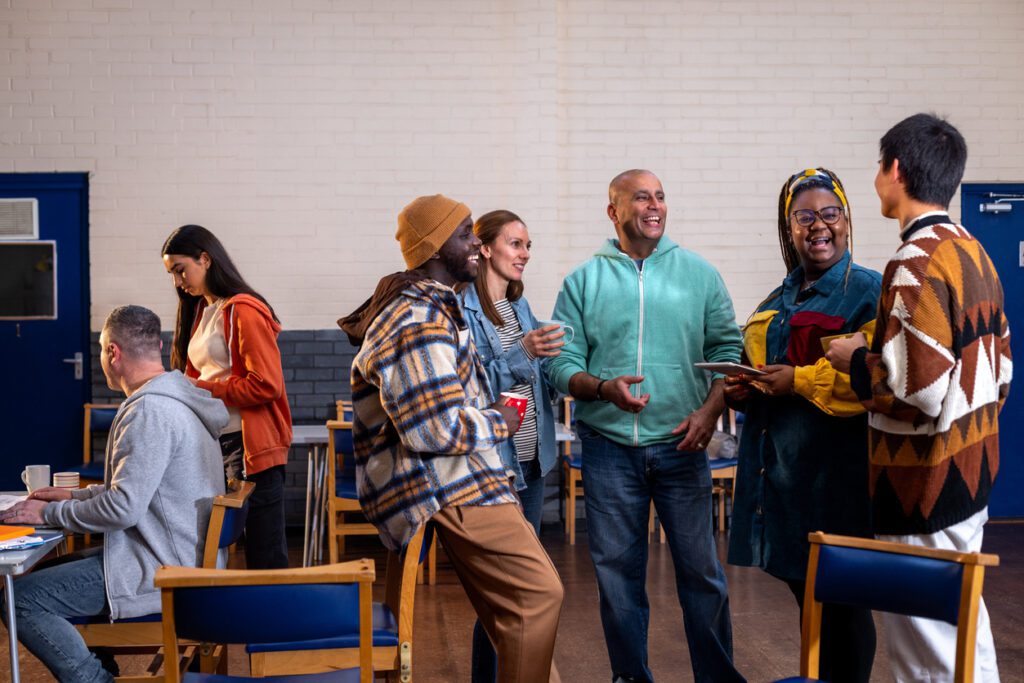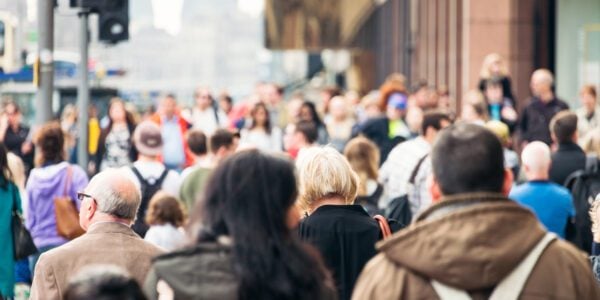
07/12/23
3 min read
We brought together researchers from across the UK to discuss the themes and questions emerging from projects funded by this programme
On October 10 2023, we held a seminar to mark the midpoint of our Understanding Communities programme. Researchers from all six funded project teams took part in the event, along with other academics working in the field.
Attendees spent the day identifying themes, concepts and questions emerging from the research and building connections we hope will persist far beyond the end of their projects.
It was a real pleasure to have the opportunity to grapple with the theoretical, methodological and conceptual challenges and the policy implications emerging from our collective research.Seminar attendee
What is the Understanding Communities programme?
Understanding Communities is a £1.1 million grants programme aimed at exploring how local communities function and can improve people’s lives. Funding was awarded to early or mid-career researchers, policymakers and practitioners, and applicants were encouraged to create multi-disciplinary teams, capture residents’ lived experiences, and use innovative methodologies alongside traditional methods. Examples include art-based approaches and social network mapping.
It was launched in February 2022 in partnership with the British Academy.
Presentations: diverse but connected aspects of community life
In the morning, we heard from three inspiring speakers about their work on diverse but connected aspects of community life:
- Anne Power, Emeritus Professor of Social Policy at the London School of Economics, described how her cross-continental research on urban neighbourhoods has revealed strengths within even the poorest communities.
- Patrick Wright, Emeritus Professor of Literature, History and Politics at King’s College London, echoed this in his account of the strong bonds between residents of the deindustrialised Isle of Sheppey.
- Martha Newson, Associate Professor of Psychology at the University of Greenwich, highlighted the role of ritual in generating feelings of community belonging, based on her research with groups as diverse as hardcore Indonesian football fans and London’s ravers.

Key emerging ideas and questions
In the afternoon, participants broke into small groups to share insights from their project work, draw connections, and formulate thoughts to bring back to the full group for the final discussion of the day. These included:
- How much can we reasonably expect from communities? The public sector must supply the bedrock of basic infrastructure, services and resources that communities need to develop and sustain themselves.
- Concepts like ‘cohesion’ and ‘resilience’ must be interpreted in context: these terms are commonly framed as positive but often arise from adversity. We should ask ourselves what a strong, healthy community that wasn’t operating under severe pressure might look like.
- We should consider the opportunities presented by community leaders as well as the risks of relying on them: certain individuals often play a key role in bringing community members together, connecting them to formal and informal sources of support, and driving community development.
- Is there a third ‘connecting’ space between community and society that’s important for flourishing? We need to better understand the multiple ways in which communities engage with state and local structures and institutions.
- How central is ‘community’ to understanding our modern digital society? Do we need additional ways to think about relationships, networks and sources of needed support?
- How can we create spaces for communities to collectively envision a hopeful future? Acknowledging that collective action often springs from a mixture of hope and nostalgia.
What’s next for these projects?
The teams will continue to reflect on these questions and more as their research and analysis progresses, and we’ll revisit them together at a final synthesis conference in late 2024. Next year will also see the British Academy deliver a series of events aimed at supporting the teams to identify policy-relevant insights and successfully engage policymakers at all levels with their research.
We’d like to thank all those who attended the seminar for their great commitment and enthusiasm.
The seminar made huge strides in uncovering the meanings of community in places of sustained incapacitation, clarifying how strong social ties need broader infrastructural, public and market interventions to contribute to local regeneration.Professor Ash Amin, Nuffield Trustee and Co-Chair of the Understanding Communities programme
The seminar was a resounding success, with all six projects working together to identify and explore some of the key challenges, whether shared or unique, facing communities.Dominic Abrams , Co-Chair of the Understanding Communities programme




















































